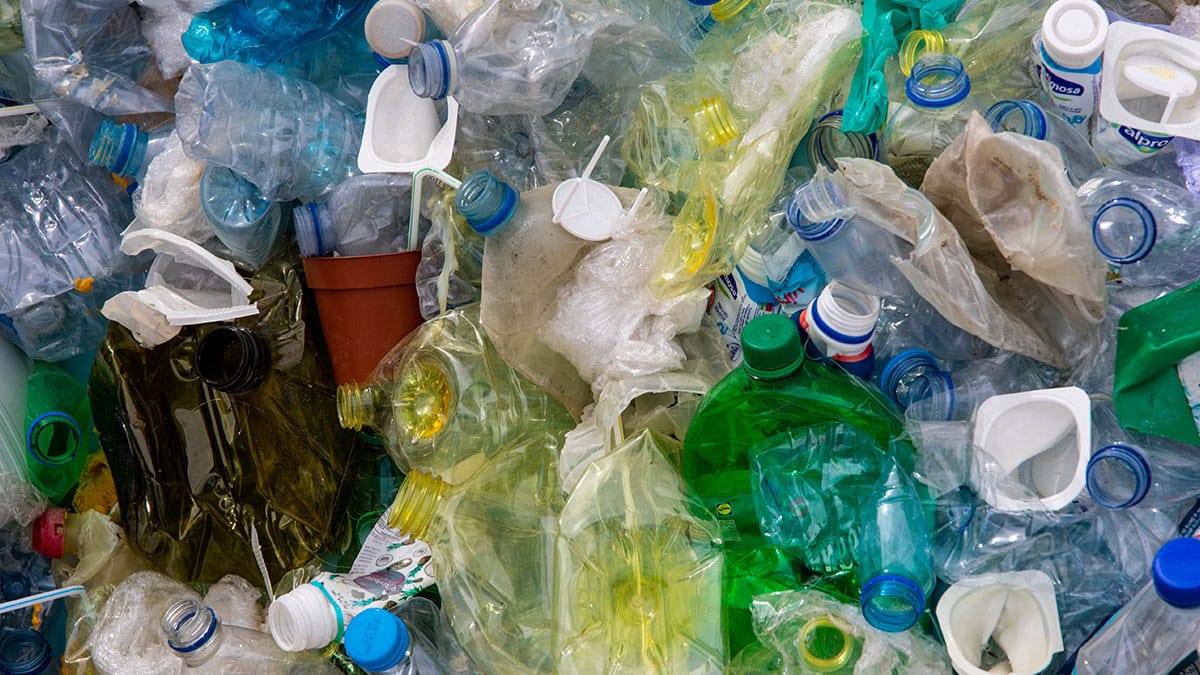The Lie of Plastic Recycling

NPR and Frontline just released an investigation that details the lie plastic producers (i.e. oil and gas companies) have told us for 50 years:
Single-use plastic, at the levels we produce and consume it, cannot be recycled effectively and there was never any belief it could.
You read that correctly. In interviewing former top officials and researching industry documents dating back to the early 1970’s, NPR’s investigation found, “…the industry sold the public on an idea it knew wouldn’t work — that the majority of plastic could be, and would be, recycled — all while making billions of dollars selling the world new plastic.”
To put it mildly, this is disgusting. There is growing recognition that plastics are killing the planet and choking our oceans. Of all the plastic ever produced, less than 10% has been recycled. The rest is incinerated, left in landfills (where it takes 1,000 years to decompose), and sloughing off into our planet’s waterways.
Oil and gas companies knew from the start that plastics, for a variety of reasons, could never be effectively recycled.
They knew. They did it anyway. And they lied the whole time. Why?
“It’s…hugely profitable,” notes investigator, Laura Sullivan. “The oil industry makes more than $400 billion a year making plastic, and as demand for oil for cars and trucks declines, the industry is telling shareholders that future profits will increasingly come from plastic.”
And it’s not just one despicable lie, it’s a whole web that spans decades. For instance, you know those numbered symbols that signify different types of plastic in products? They were created to give the illusion that every type of plastic is recyclable. Reality check: nope.
In the late 1980’s, the industry lobbied 40 states to make those symbols mandatory on all plastic products to further the idea among consumers that ALL plastics – regardless of type – were recyclable thereby increasing public comfort with plastics while making the recycling issue worse. That’s why, confusingly, you see that symbol on polystyrene (Did you know Styrofoam is a brand name owned by Dow Chemical?) even though it is virtually impossible to recycle effectively.

And there’s more – this barely scratches the surface. Please read this important investigative report. It’s nothing short of shocking, even for people who have been concerned about plastic pollution for a long time – like many of you! Share this story. Put it out on social media. Let the oil, gas, and plastic companies know their dirty secret is out.
What else can you do?
First of all, don’t stop recycling. It does work in some cases. Aluminum and glass are infinitely recyclable, meaning the material can be used over and over without degradation. In other words, an aluminum can is able to be melted down and turned into another aluminum can. Paper recycling can help reduce the number of trees that are cut down for things like toilet paper or paper towels. Even some plastics can be downcycled (notably not REcycled) and turned into other useful products. So to be clear: DON’T STOP RECYCLING.
Your best course of action, like nearly all things related to conservation, is to reduce your use and speak up! Refuse single-use plastic and actively fight against it. Carry and use a reusable water bottle, request no straws when you get a drink, don’t use single-use plastic bags, find alternative reusable options at home. If a company sells a product that comes in a ton of plastic, find a competitor that doesn’t. We know, none of this is exactly mind-blowing advice, but it’s true. Reducing single-use plastic in your life drives down demand and PROFITS for plastic companies.
But even more important: SPEAK UP & SPEAK OUT! We’re mad as hell and we’re not going to take it anymore! If a company makes a product you love, but it comes in a ton of plastic, tell them you won’t purchase that product any longer unless they find a new solution. Sure losing one customer probably won’t move the needle, but what if they lose THOUSANDS!? Your favorite takeout place uses plastic containers? Ask them if you can bring your own takeout containers and ENCOURAGE them to look for alternatives to plastic. Be a vocal advocate for the planet.
And finally, again, please read the report. Sit with it for a while. Share it far and wide. Get mad. Then TAKE ACTION.
